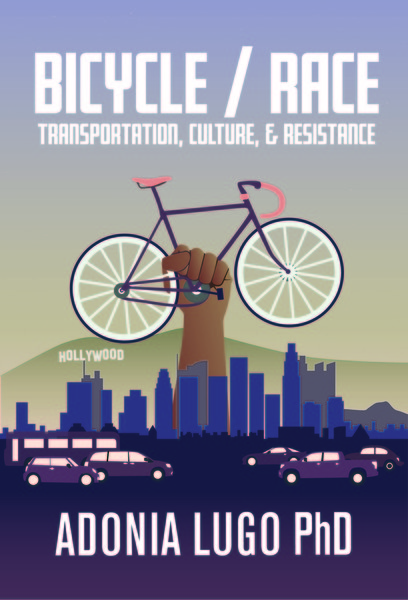In Southern California food trucks, particularly taco trucks, have been around for a long time. The first time I remember seeing one was at a light industrial park in south Orange County where my dad worked when I was about four. It stuck out in my mind because of the corrugated metal siding. They just blend into the landscape here.
As I understand them, food trucks have fairly stable locations and the same workers patronize them everyday for lunch in places where other options are lacking. They're an ingenious way to correct for a lack of mixed use development, where food was an afterthought. In LA they seem to also be a night time thing. The taco truck near my Metro station often feeds me when the delicious aroma of carne asada and onions stops me in my tracks and erases all other dinner plans from my mind.
These everyday food trucks are emerging as something cool, and now people track food trucks via Twitter, and chase them around town. I appreciate the emphasis on valorizing street food as part of a return to urban street culture, but how many people drive to food trucks? Isn't there something fundamentally bizarre about driving to a food truck? Their whole existence relies on the notion that there is a group of people in some location that will want to eat a meal, but now they broadcast their locations to anyone willing to drive to meet them. There are websites that categorize the trucks for your pleasure, and clearly many people have decided that a food truck is a worthy business venture. Not just for immigrant families anymore?
I wonder how long the trendiness of the trucks will last before it's just back to tacos and workers eating a mundane lunch. Or maybe this will be a permanent change as part of our adjustment to cities marked by constant referral to geographic tracking technology? While in the past foot traffic was the limiting element of business growth for the trucks, now anyone interested can make them into a destination and they are free to change locations as demand shifts without losing customers?
Maybe there will be two food truck markets, like the older ones run by immigrant families that serve neighborhoods, and the glossier ones run by venture capitalists who serve the growing number of young urban professionals tied to their smart phones and willing to drive across town for fusion food. One adds to place, while the other adds to smog?
This is weird, though, not least because the turn to food trucks here is marked by a focus on the "green" practices of poor people. For example, this street food-themed restaurant emphasizes sustainability while also creating an environment where the low income families that make and consume street food do not spoil patrons' enjoyment of their meals with their pesky poverty.
How green are food trucks that encourage customers to drive around town? How is it appropriate to call the practices of the poor green when you've hidden the economic constraints that lead to their low use of resources?
Lucky for the world that things don't have to make sense, especially when they make money instead.

